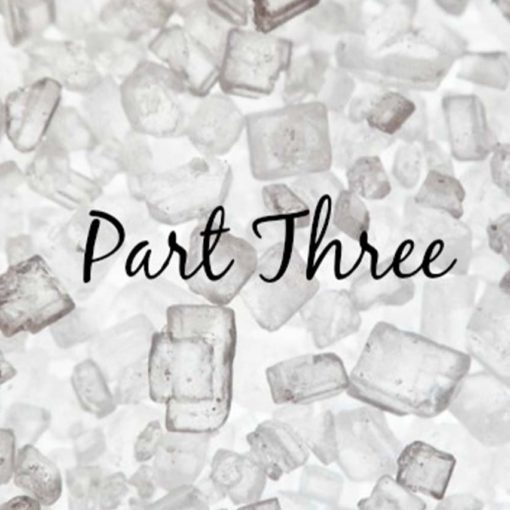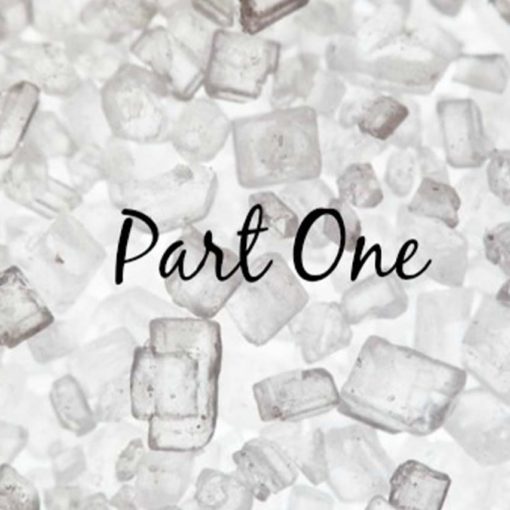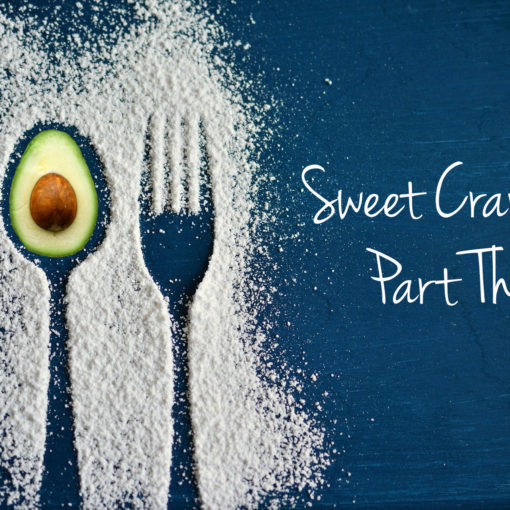Podcast: Play in new window | Download (Duration: 11:25 — 4.0MB)
Subscribe and don't miss an episode! Apple Podcasts | Spotify | Android | iHeartRadio | Deezer | RSS
In this second part of our revisited podcast on sugar, we discuss what kinds of sugars are out there and what they do to our bodies and how our bodies process them. Wondering which sweeteners are dangerous and which are not? We explain.
Transcription of the Nourish Noshes Podcast Sweet Cravings Part 2
Edited for clarity.
Debbie
Here’s part two of our podcasts that we recorded six years ago. And we’re reintroducing it to you because it’s still so relevant.
Wendy
Yeah. And we’d love to understand where people are in this journey, what you gathered from part one. And as you listen to part two we’d love to hear some feedback.
Debbie
All right, here we are talking about why we love sugar. This is part two of our sugar series.
Wendy
And we’re going to start off by talking about some of the most natural kinds of sugars.
Debbie
Right, we’re also going to touch on artificial sweeteners and sugar alcohols. But let’s start with the good stuff.
Honey
Wendy
Let’s start with the good stuff, honey, it’s one of the most beautiful sugars.
Debbie
Right that golden honey.
yum, yum, yum, honey,
Wendy
Right. And when we eat the honey, just remember the bees work so hard for it so it’s important, we just need to have a little bit more appreciation for the honey and whenever you can, go for local honey. Make it raw and know that some of the most processed honeys out there don’t have 100% honey in it. So please buy local – buy from your friends who are harvesting honey who care for their bees. Right?
So we need to know about honey is that it does have a high fructose content. So it might cause trouble for some people with fructose malabsorption problems.
Debbie
FODMAPS.
Wendy
Yeah, so fructose in honey is accompanied though by an equal amount of glucose. So it can be easy for some people to digest. So just, you know, test your system.
We’re always trying to understand what’s best for us. So just if honey works for one person, it doesn’t have to work for everybody.
Debbie
But I think it is the best natural sweetener out there. Absolutely. Absolutely.
Maple Sugar
Wendy
So honey is number one. Number two is maple syrup. I remember my grandfather tapping his big maple trees and had a huge farm 145 acre farm and that was one of the best treats going to his house is to have their homemade maple syrup.
Debbie
We do that at our house. Now we have a couple of maple trees in our yard and we tap it and we have a couple jars of maple syrup.
Wendy
Oh, that’s fabulous. Yeah. All right. So it’s relatively low and fructose. And so it’s a good option for people who have some trouble with fructose. It also contains some manganese, potassium, some iron and calcium.
Debbie
Necessary minerals for us.
Wendy
So maple syrup syrup is number two. The next one is molasses. And it’s essentially table sugar but with nutrients. It’s not as processed. And it’s that nice, dark, rich, original color. And it also has minerals iron, calcium, and magnesium. And that’s what is stripped from actual table sugar. That’s what humans are refining.
Debbie
Same plant, the cane, sugar cane, but more nutritious.
Coconut Sugar
Wendy
And then we’ve got the coconut sugar. It’s relatively new to the market. And that’s what you and I both use in baking.
Debbie
Yeah, really good one-to-one ratio replacement to regular sugar.
Wendy
Yeah, I like that. It’s not as processed. And it also contains a higher amount of magnesium, nitrogen and vitamin C than other sweeteners. I haven’t tried the coconut nectar yet.
Agave Nectar
Debbie
No, I haven’t either. But I’d love to research that one and see how that is. So another all natural sugar that’s out there that’s well known these days is agave nectar. And it’s really well known because it’s super low on the glycemic index. And it got out there as an all natural sugar.
Wendy
It was a darling child. I know I introduced it to my clients. Sorry about that everybody!
Debbie
Yep, cookbooks came out for that using agave nectar as the next best thing, and it was still very popular.
Wendy
Yeah, it really is.
Debbie
But we want to put a warning on that, because it’s really not good. And the reason is because it is far higher in fructose than high fructose corn syrup. And as we said before, there’s a lot of people who have trouble with fructose. It is super, super sweet. People don’t digest it well. But aside from that, we also don’t digest in our digestive system, we actually process it in our liver. And that’s not a natural place for sugars to be digested. It doesn’t raise our glycemic index because our insulin doesn’t go up. And our insulin doesn’t go up because it doesn’t recognize it as a real sugar. And we want our insulin to go up. You know, that’s normal, because it also suppresses some other hormones that tell us, you’re not hungry anymore, you’re done. And if we don’t have that message, we’re going to keep eating and we’re going to keep eating sweet things. And that’s what puts the weight on. So it’s not only the weight but it also damages our liver, among other things.
Wendy
Exactly. Yeah. So warning on the all natural agave nectar.
Debbie
Right. And besides all that, it is highly, highly processed yet it’s not nearly what it looks like when it comes out of the plant.
Artificial Sugar
Wendy
So the next thing we wanted to talk about is artificial sweeteners. And their main selling point is that they have no calories. We’re very demanding society, right? We want to have all these sweet things with no calories. But that really messes with our hormones.
Debbie
Even by name they are artificial sweeteners. Anything with the word artificial – that’s one word we say to our clients not to have. We don’t tell you not to eat anything necessarily, but please stay away from the artificial stuff.
Wendy
Yeah, definitely. And with artificial sweeteners, it does give us a spike in insulin.
Debbie
It does.
Wendy
So it does recognize it as sugar, but it’s a huge spike because some are 600 times sweeter than table sugar or some are 7000 times sweeter than sweeter.
Debbie
That’s crazy.
Wendy
Yeah, it’s crazy. And the side effects are even crazier.
Debbie
Our taste buds aren’t used to that kind of sweetness. It’s not a natural sweetness.
Wendy
So an apple doesn’t taste like an apple anymore after we’ve had a bunch of artificial sweeteners. So ugh. They’re so denatured we become denatured.
Debbie
That’s right. And that’s why a lot of kids are not eating really healthy, good stuff, because it has no taste to them. They are used to be super flavors, especially sweetness. So we need to train our taste buds back to natural sweetness.
Wendy
So we need to be really careful about the ingredients list, right on the packages and anything that says diet or low fat even. Read the labels of anything in a package really.
Debbie
Right. And we know the brand names, we know Splenda, we know Equal, we know Sweet N Low and so we know to stay away from those but sometimes they’re not labeled as the brand name like sucralose is one of those, which is what Splenda is. And sucralose is actually processed by using chlorine, which is a neurotoxin. That’s very great, right? It’s a carcinogen. So nobody would, you know, willfully eat something that was processed with chlorine, but you are if you’re having Splenda or sucralose and just another thing too, is aspartame has had a lot of press out there as not being healthy. And we need to reiterate that I think it’s been investigated as causes of brain tumors, mental retardation, birth defects, epilepsy, Parkinson’s disease, and the list goes on and on. And there’s other things associated with it too, like ADHD, migraines…
Wendy
Migraines, skin disorders and personality disorders as well. I had one client who came to me and said, take anything anything you want except diet coke. And I’m like, Oh my gosh, that’s the only thing I ever want to say is no to have anything that is artificial sugar. And so she finally came around and said, Okay, I’m going to try and she had been having headaches. At lunch every single day for years and years with their diet coke, she took it away. And three days later, her headache stopped, she had more energy. It was an amazing transition.
Debbie
Aspartame is so bad that the US Air Force pilots were even banned to not have any, because of all the dangers, but the FDA has banned it.
Sugar Alcohols
Wendy
Now that’s confusing after all this research and all these scientific studies. It’s very, it’s very upsetting.
So the next set of sugar, we want to talk about are sugar alcohols, and they’re becoming much more popular these days, too. So let’s uncover the good and the bad about these guys. So we’ve got xylitol, sorbitol manatal, erythritol are some of the more common ones, anything that ends with an ‘tol’ at the end to be able to recognize it. And these are much lower in the glycemic index than sugar, but it can be difficult for the body to digest. I know for me, I get a lot of gas and need to be by the bathroom when I have any kind of sugar alcohols, even when I pop gum in my mouth. But like the xylitol can be good for reducing the amount of bacteria the nasty bacteria in our mouth can help prevent cavities.
Debbie
Yeah, so a lot of dentists are actually promoting xylitol. And if you don’t have an issue with that with digestive disorders then they are okay for you. I don’t have a problem.
Wendy
In moderation, right.
Debbie
Yeah, so they are concentrated. And they do come from natural sources. They are naturally occurring in fruits. So it’s not that they are artificial, it’s just they are eaten in amounts that aren’t natural.
Wendy
Which is what we do, right with all sugar, we take it in amounts that aren’t natural for us.
Debbie
We’re like, we want more.
Yeah, so there’s another kind of sugar that’s out there that’s really popular these days is stevia. And that’s being marketed under brand names like Sweet Leaf and Truvia. And so they’re coming in packets and they’re showing up on restaurant tables too. And stevia is pretty good. We’re pretty happy with that one because it’s from a plant. It’s from a green plant. I’ve grown it in my garden and the leaves are very, very sweet. It’s much sweeter than table sugar. The problem comes that again it becomes highly processed so turns from a green plant into a white powder. So we suggest you try to find the green powders that are out there. It also comes in liquid form which we like better than the white powder that’s been bleached and processed. So stevia is on our okay list as of right now.
Wendy
If you’re used to artificial sweeteners, we often suggest stevia as a transition for you,
Monk Fruit
Debbie
Right, it’s a really good alternative to those artificial sweeteners. This last one that’s really brand new that’s out there is monk fruit. And that is actually a fruit that’s grown in the Far East. And it’s very, very, very sweet again, and of course, they’re extracting the sweetness out of it now and, and making it into a powder. Lu Han Guo is another name for it. So that one we’re sort of feeling out and discovering, and trying to figure it out. It’s being marketed under the brand name Locanto. But know that that’s not purely monk fruit that is monk fruit combined with the erythritol. So it’s not purely monk fruit, but you’ll be aware of that if you have issues with those sugars.
Wendy
So now that we know what kinds of sugars are out there on the market, we want to talk about how to deal with our cravings because we definitely love sugar. And we know there’s a roller coaster so how do we deconstruct those cravings? How do we clean up our diet and find other sweetness in our life?
Debbie
Right – How to find the sweetness in our life without using sugar? Stay tuned for Part 3.
Wendy & Debbie
Thanks for listening. Keep the conversation going at Nourish Coaches.com and stay tuned for more Nourish Noshes as we continue our quest to make the world a healthier place.






